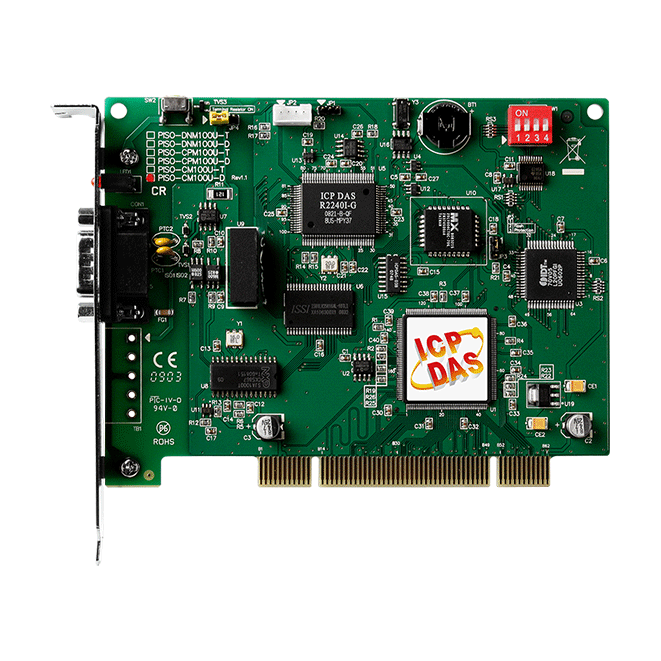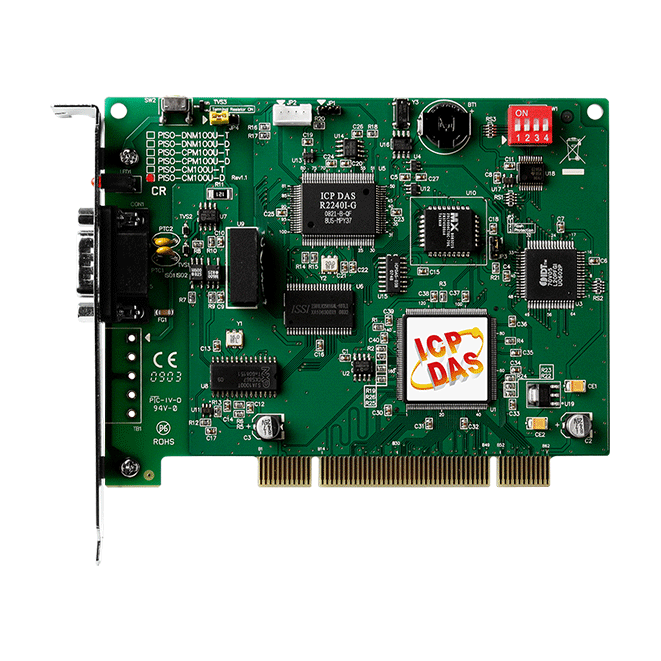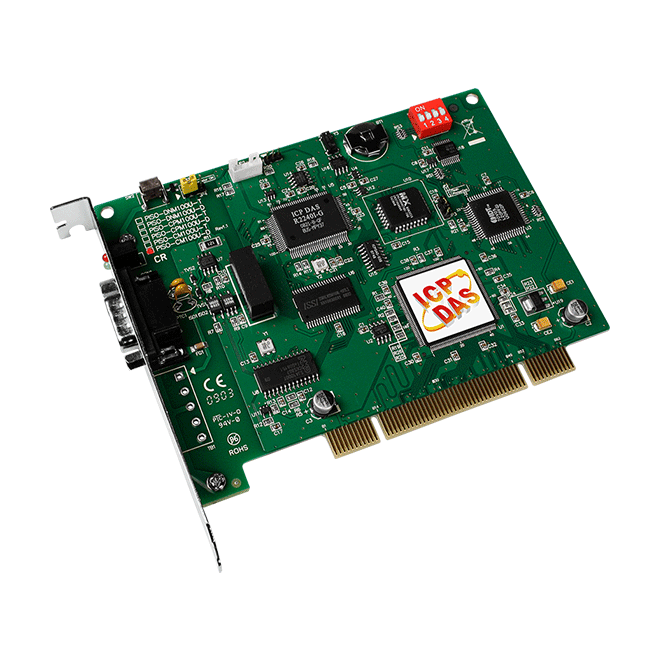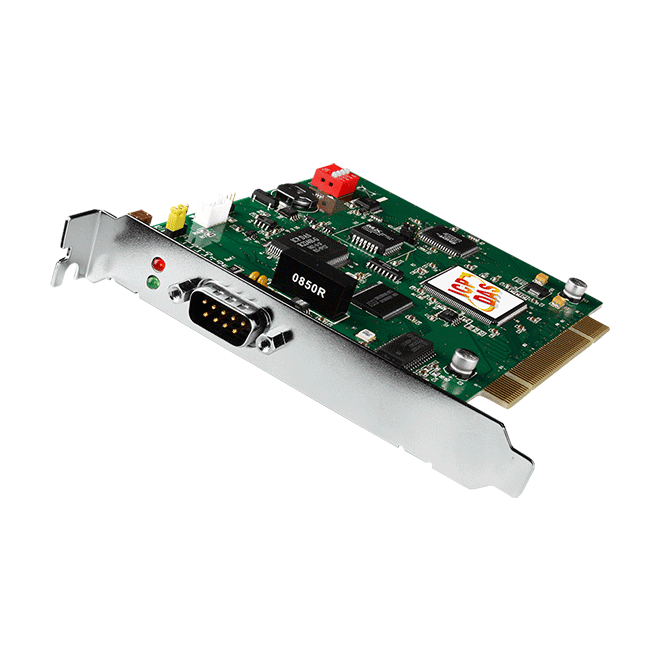1-port CAN Programmable Universal PCI Card
The CAN (Controller Area Network) is a serial communication protocol, and efficiently supports distributed real-time control with a very high level of security. It is an especially suited for networking "intelligent" devices as well as sensors and actuators within a system or sub-system. In CAN networks, there is no addressing of subscribers or stations in the conventional sense, but instead prioritized messages are transmitted.
ICP DAS provides an open architecture platform for CAN bus PISO-CM100/100U. The PISO-CM100/100U represents a very powerful and economic solution of an active CAN board with one CAN channels, covering a wide range of CAN applications. The 16-bit on-board microcontroller allows, among many other features, the filtering, preprocessing, and storage (with timestamp) of CAN messages as well as the real-time transmission of CAN messages. PISO-CM100/100U also uses the new Phillips SJA1000T and Transceiver 82C250/251, which provide bus arbitration and error detection with auto correction and re-transmission function. Under the effect of the powerful microcontroller, this card can be made for one CAN controller without losing data, even in systems with a high bus load. Besides, equipped with integrated intelligence functions, the PISO-CM100/100U makes it is possible to preprocess CAN data streams, thus relieving the PC of a considerable burden. As a result, real-time requirements on the PC applications are drastically reduced. Due to the state-of-the-art, it can be installed in a slot of 32-bits PCI bus or Universal PCI bus and supported truly “Plug & play” technology.
In addition, users can develop their own CAN application by using the PISO-CM100/100U library. When the PISO-CM100/100U is active, the data exchange between users’ application and can bus firmware is performed via the memory mapping method of the PISO-CM100/100U.

 فارسی
فارسی
 English
English



